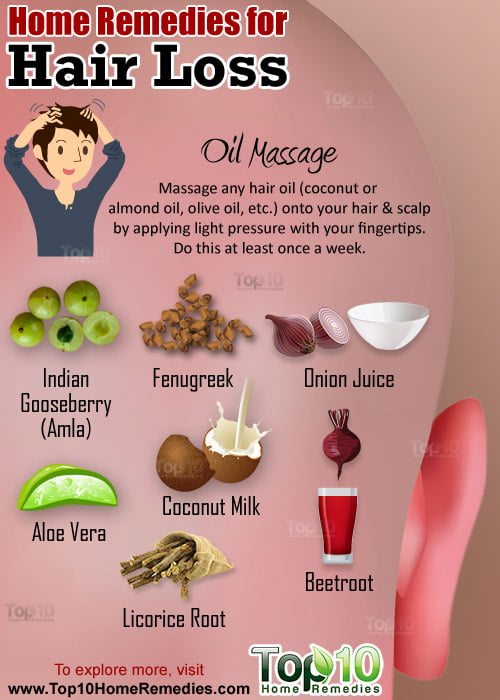
“Ditching butter for veg oil may not be better for heart,” the Daily Mail reports.
An analysis of previously unpublished data from the 1960s and 70s found no benefit in replacing sources of saturated fats with vegetable oils.
The original study was conducted from 1968 to 1973 in six US psychiatric state hospitals and a nursing home. People were randomly assigned to eat a diet that switched saturated fat with vegetable oil rich in linoleic acid, or a control diet including saturated fat plus linoleic acid for about a year. Researchers looked at the data from more than 2,000 participants over a maximum follow-up period of four years.
Both diets reduced cholesterol levels, though the effect was greater for the diet with vegetable oil. In both groups, lower cholesterol levels were associated with an increased risk of death for people aged 65 or over. It is not clear that this was due to the diet, as it occurred in both groups, and as there were such small numbers, the findings are not reliable.
The study population – people staying in a nursing home or a psychiatric hospital – are not representative of the population at large, limiting confidence in the findings.
Since the 1960s and 70s, large randomised controlled trials (RCTs)have shown that lowering cholesterol with statins reduces the risk of death.
This study does not conclude that butter is good for you, but does add to the debate about dietary composition.
‘The fat controversy’
This is certainly not the first study to challenge the generally held consensus that saturated fats are bad for people. As we have discussed in recent years, there have been studies arguing that:
- the 1980s fat guidelines ‘lacked evidence
- the link between saturated fats and heart disease is unproven
- it is trans fats, not saturated fats, that pose the real risk to heart health
It is reported that the government’s Scientific Advisory Committee on Nutrition is due to publish an evidence review on saturated fats in 2017. Whether this will settle the debate on the role of fats in diet remains to be seen.
Where did the story come from?
The study was carried out by researchers from the National Institute on Alcohol Abuse and Alcoholism, the University of North Carolina, Medtronic (in Minneapolis), the Mayo Clinic, the University of Illinois at Chicago, and the UNC Gillings School of Global Public Health.
It was funded by the National Institute on Alcohol Abuse and Alcoholism, National Institutes of Health, and the University of North Carolina Program on Integrative Medicine.
The study was published in thepeer-reviewed medical journal the BMJ on an open-access basis, so you can read it for free online.
In general, the UK media reported the study accurately and put the results into context, providing helpful and balanced comments from experts in the field, both for and against the arguments put forward in the study.
However, there was little coverage of the limitations of the research, such as the unrepresentative nature of the participants.
What kind of research was this?
This was a re-evaluation of an RCT conducted in the US from 1968 to 1973 and a systematic review and meta-analysis to put the results into context. The RCT aimed to see if a diet replacing saturated fat with vegetable oil rich in linoleic acid could reduce cardiovascular diseaseand deaths.
This type of study design is considered to be the gold standard, but in this case there are numerous limitations, including the short length of follow-up for determining these outcomes. In addition, the researchers were not able to access all of the data, so their main analysis is based on a small number of participants.
What did the research involve?
The researchers analysed published and unpublished data from the RCT.
This was a double-blinded RCT conducted in a nursing home and six state psychiatric hospitals. A total of 9,570 people were randomly assigned to eat a diet that was low in saturated fat, but high in linoleic acid-rich vegetable oil, or a control diet that had the same amount of saturated fat used before the study, but with an increase in linoleic acid. This control diet used common margarine and shortening (butter or lard).
The intervention diet used liquid corn oil instead of cooking fats and also added this to salad dressings, “filled beef” (lean ground beef with added oil), “filled milk” and “filled cheeses”. This diet reduced the saturated fat from 18.5% to 9.2% of calories consumed. Both diets were designed to look the same, and the study participants and medical staff did not know which diet they were eating.
The diets were eaten for an average of 460 days.
Data was used in this re-analysis from a subset of 2,355 participants who had followed the diet for over a year, had regular cholesterol measurements and had follow-up data for three years.
The researchers analysed the results to take into account some common confounding factors, such as:
- baseline cholesterol
- age
- sex
- body mass index (BMI)
- systolic blood pressure (the pressure of the blood when the heart beats to pump blood out)
- their assessment of adherence to the diet
They then performed a systematic review and meta-analysis of any RCT that compared diets using vegetable oil in place of saturated fat and no other intervention.
What were the basic results?
Re-analysis of RCT
Based on a subset of 2,355 people:
- The low saturated fat diet significantly reduced the level of cholesterol in the blood by 13.8% compared to the control diet, which lowered cholesterol by just 1%.
- In both groups, for each 0.78mm/l reduction in cholesterol, there was a 22% higher risk of death from any cause (hazard ratio [HR]1.22, 95% confidence interval [CI] 1.14 to 1.32). This statistic appeared to be driven by a 35% higher risk for 595 people aged 65 years or more at the start of the study (HR 1.35, 95% CI 1.18 to 1.54).
- There was no association between cholesterol reduction and death for the 1,760 people aged under 65. This was based on 149 deaths.
The researchers reported that a thesis on the RCT written in 1981 found that, overall, the low saturated fat diet did not reduce the risk of death compared to the control diet over the next four years and may have increased the risk of death in people aged 65 or over. However, the researchers did not have access to the raw data to be able to confirm these findings, or whether they were statistically significant.
There was insufficient autopsy information for accurate analysis of the effect of the diets on heart attacks or atherosclerosis (hardening of the arteries).
Systematic review and meta-analysis
Five RCTs including 10,808 participants were identified that compared a diet substituting saturated fats with vegetable oils rich in linoleic acid. Pooling the results, there was no difference between the diets in terms of death from coronary heart disease (HR 1.13, 95% CI 0.83 to 1.54) or death from any cause (HR 1.07, 95% CI 0.90 to 1.27).
How did the researchers interpret the results?
The researchers concluded from the available evidence that, “replacement of saturated fat in the diet with linoleic acid effectively lowers serum cholesterol but does not support the hypothesis that this translates to a lower risk of death from coronary heart disease or all causes”.
They also criticised the fact that some of the data from the RCT was unpublished and say that this has “contributed to overestimation of the benefits of replacing saturated fat with vegetable oils rich in linoleic acid”.
Conclusion
This re-evaluation of some of the data from an old RCT has found that both diets reduced cholesterol levels, though the effect was greater for the diet with vegetable oil. In both groups, lower cholesterol levels were associated with an increased risk of death for people aged 65 or over. It is not clear that this was due to the diet, as it occurred in both groups, and as this was just based on 149 deaths over a relatively short follow-up period, this limits the reliability of the findings.
Cholesterol levels can reduce due to illness, and there was a lack of information about what other illnesses any of the participants had, why they were in the psychiatric state hospitals, what medication they may have been taking and if they smoked. These factors limit our confidence in the findings of this study.
Other limitations include the actual amount of food that was consumed. The study design meant that participants were assumed to have eaten the food on their tray, and not to have eaten if they did not collect their tray. In addition, the study is not able to take into account any other food that the people may have eaten from visitors or the effect of their diet over their lifetime. There was also a wide variation in the diets between the hospitals.
The original study was conducted more than 45 years ago, before statins were available. Since then, large well-conducted RCTs in the general population have shown that lowering cholesterol with statins reduces the risk of death.
This study does not conclude that butter is good for you, but does add to the ongoing debate about the best dietary composition.
Due to the limitations of the study, it should not been seen as “proof” that the current guidelines regarding saturated fats are flawed. The current UK health guidelines recommend that:
- the average man should eat no more than 30g of saturated fat a day
- the average woman should eat no more than 20g of saturated fat a day
These guidelines may well change after the publication of the Scientific Advisory Committee on Nutrition’s evidence review on saturated fats, expected in 2017. But until then, we would recommend erring on the side of caution.
[Source:- NHS]
















